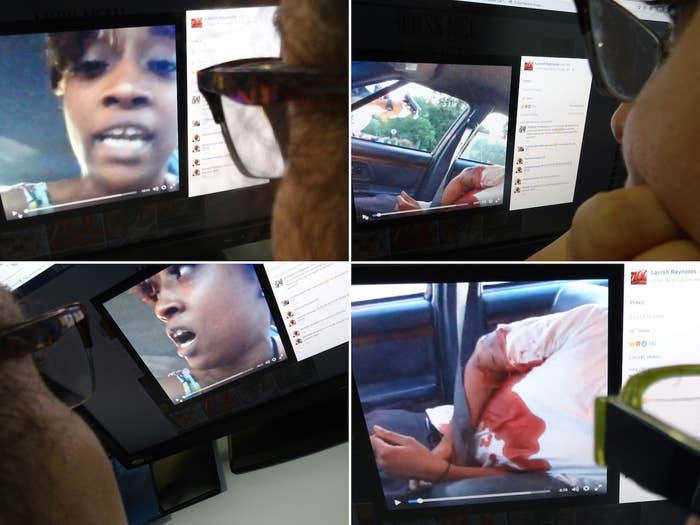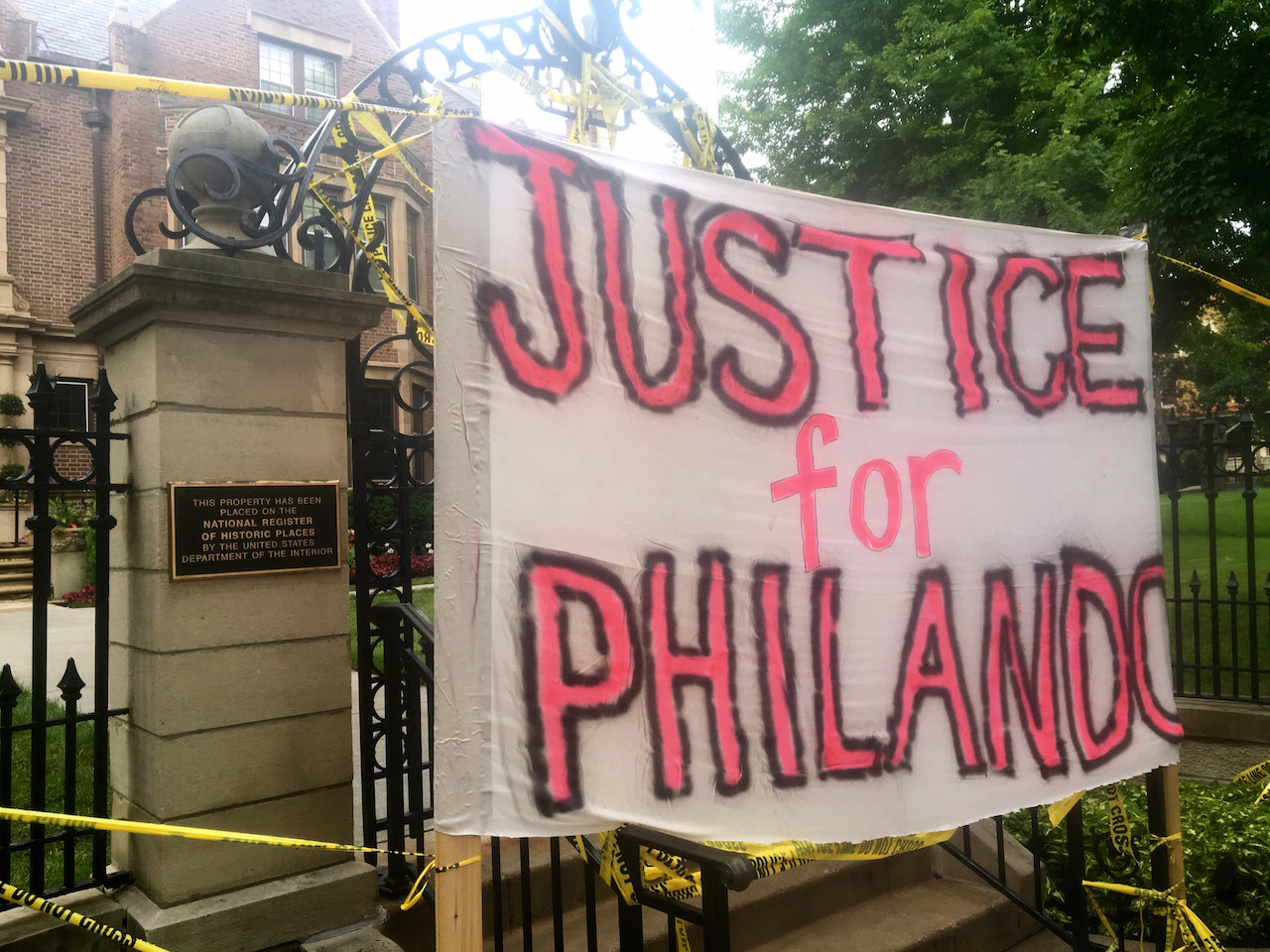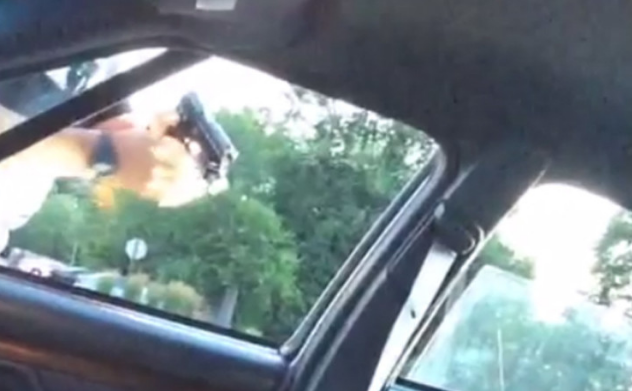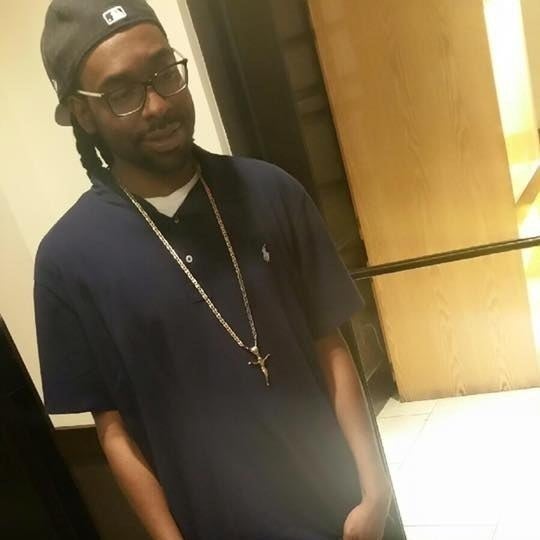
Public outrage over police-involved shootings of black men was reignited this week, culminating with the death of 32-year-old Philando Castile, the bloody aftermath streamed live on Facebook.
But Castile, unlike dozens of others killed in police-involved shootings that have made national headlines, reportedly had a permit to carry a concealed weapon — his girlfriend, Diamond “Lavish” Reynolds, could be heard in the streaming video saying he was licensed to carry a gun as he laid slumped over in the driver's seat.
Reynolds asserted that Castile informed the officer during the traffic stop that he had a gun in the car and a permit to carry it, but was shot as he reached for his ID and registration.
Experts told BuzzFeed News Thursday that while details of what exactly happened in the moments leading up to the shooting have to be established, police generally receive little training on how to interact with conceal-and-carry permit holders.
So what happened to Philando Castile?
Saint Anthony police said Wednesday that the shooting took place after a traffic stop in Falcon Heights about 9 p.m. local time Wednesday on Larpenteur Avenue, near Fry Street.
“We got pulled over for a busted tail light in the back,” Reynolds said in the Facebook Live video taken after Castile was shot.
Reynolds added that Castile told the officer he had a firearm and reached in his pocket for his ID when the officer shot him about four times.
Castile died later at Hennepin County Medical Center. Reynolds was questioned by police and released on Thursday.
The results of a federal investigation into what led to the shooting is pending, and authorities have declined release further details.
Was Castile actually licensed to carry a gun?
Police sources: Philando Castile - man shot by police officer - did indeed have a concealed carry permit with @Hennepin @kare11
That has yet to be confirmed. Local media reported that he did have a license, however, Minnesota state law prohibits public disclosure of private firearm permit information.
“We can neither confirm nor deny if an individual had or did not have a permit to carry a firearm,” Hennepin County Sheriff spokesman Jon Collins told BuzzFeed News.

When you’re pulled over and carrying a firearm, do you have to disclose you have a weapon?
Not in Minnesota. The state’s gun law does not require a permit holder to disclose they are carrying a firearm unless they are asked. In that case, a permit holder must disclose if they are currently carrying a firearm.
While there is no state law that neatly lays out procedures for police when they pull over permit holders, Olson said police are in charge of the situation as soon as they reach a driver’s window. The permit holder’s responsibility is to comply with the officer’s orders, he added.
“It appears that the permit holder who was shot did everything right,” Olson said of the claims made by Castile's girlfriend. “The problem here is for the police. They are in charge and the responsibility is on them to give clear instruction and apparently that didn’t happen.”
Experts on police training and former law enforcement told BuzzFeed News that, despite more states adopting open-carry laws and more people applying for concealed weapon permits, most departments don't offer police officers extensive training on how to address people legally carrying firearms.
That means how officers react to people carrying firearms can vary wildly.
"Some officers are fine with it, some are more chicken-shit than others," Ron Avery, a former Colorado police officer and president of the Practical Shooting Academy, which trains police, military, and civilians, told BuzzFeed News. "They're leaving too much up to the officer instead of really having a good discussion about it and addressing (the officers') fears."
At the end of 2015, there were 207,045 valid conceal-and-carry weapons permits in Minnesota, or about 4% of population, according to the state Bureau of Criminal Apprehension.

Are officers supposed to act differently, or more cautiously with legally armed people?
Experts say no, although some officers are more apprehensive when they find out someone is armed.
"Understandably, you would express more caution, greater anxiety perhaps, but that doesn't justify taking unprovoked action," Dennis Kenney, a former Florida police officer and a professor at the Department of Criminal Justice at John Jay College of Criminal Justice, told BuzzFeed News. "Simply doing something that is legal doesn't, or shouldn't, expose you to greater risk."
Regardless if the person stopped by police are armed, Kenney said, officers should be evaluating the risk by the person's interactions, body language, and cooperation, not just on being legally armed.
Avery points out that those who tell officers they hold a permit are most likely telling the truth, which should also tell officers they have more than likely faced and passed a background check.
Should officers ready their weapon if someone they stop is legally carrying a firearm?
"Hell no, hell no, hell no," Avery said.
Officers can use discretion in how they interact with someone legally armed, depending on how that person is interacting with the officer. But an officer unholstering their weapon or getting belligerent with a person would only escalate the situation, he added.
Though there's little training officers undergo in this specific instance, Avery said the officer clearly and calmly communicating requests is the best way to handle most situations, unless the person is being arrested.
Still, there have been instances where officers try to disarm people with firearms because they fear for their safety.
"A lot of cops are really worried about their personal safety where they become unreasonable," Avery said. "You have a lot of cops that are scaredy cats and are willing to pull out a gun because they are scared."


How does someone get a gun permit in Minnesota?
Anyone interested in legally carrying a firearm must apply for a permit through their county sheriff’s office. Officials then conduct a background check of the applicant through the Minnesota Crime Information System and the National Instant Criminal Background Check System. All of the person’s mental health and chemical dependency records are also reviewed to determine the status of the person applying for a permit.
The applicant then takes a day-long training course on firearm handling and safety, and pay a fee up to $100.
The whole process can take anywhere between three days to a month, John Olson, a professor emeritus at Mitchell Hamline School of Law, told BuzzFeed News.
What if you don’t have a permit on you while you’re carrying a gun?
You can get a ticket.
“Essentially, you have to have a permit — it’s treated like a driver’s license,” said Olson. “You have a driver’s license even if don’t have it in your purse.”
But the ticket can be dismissed if you later present your permit to the police station, according to state law.
What do gun rights groups have to say about the Minnesota police shooting?
It’s mixed and a little complicated. The National Rifle Association declined to comment to BuzzFeed News about the Minnesota shooting Thursday.
On Friday, the organizations tweeted a statement calling the shooting "troubling."
The reports from #Minnesota are troubling and must be thoroughly investigated. #2A #NRA
Andrew Rothman, president of Gun Owners Civil Rights Alliance in St. Paul, told BuzzFeed News that the shooting is an outlier in an otherwise amicable relationship between gun permit holders and law enforcement.
“This is a very strange incident that does not fit the pattern in the state that has been going on for more than a decade,” he said, adding that permit holders are "the known good guys, frankly, more than anyone else they encounter.”
Rothman, who is white, said law enforcement officers understand gun permit holders undergo extensive criminal checks and substance abuse reviews. But that impression of permit holders may be compromised by the tense relationship between Minneapolis’ black community and police.
But Philip Smith, founder and president of National African American Gun Association with more than 10,000 gun-owning members, said “the worst thing African-Americans can start doing is to start thinking we shouldn’t carry guns because we might get shot.”
“That’s making us second class citizens,” he said. “We don’t have access to the full Second Amendment because of the racist actions of a few people.”
Instead, Smith said the officers’ actions must be “be corrected and removed from law enforcement.”
What about Alton Sterling, who was shot and killed by police in Baton Rouge, Louisiana? Was he legally carrying a gun?
The short answer: No. Louisiana has relatively lax state gun ownership laws. Gun owners don't have to get a permit to make a purchase, and don't have to register their firearms once they do.
However, state law does require people to have a concealed-carry permit for handguns.
The only two categories of people who are restricted from possessing a gun are those under 17, and those convicted of certain violent crimes. Because of Sterling’s criminal background — domestic battery, sexual offenses, and illegal possession of a firearm — he was barred from owning a gun at the time of his fatal shooting.

